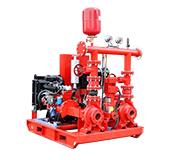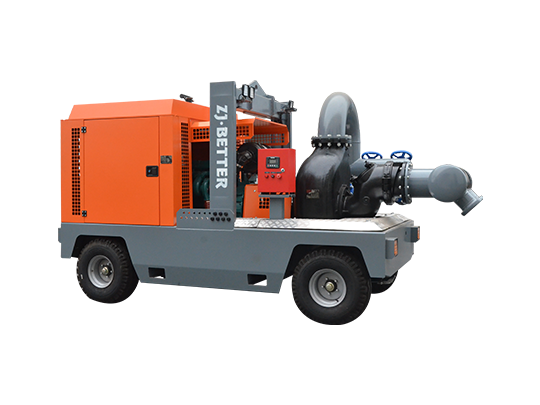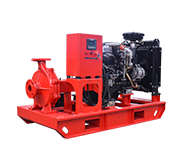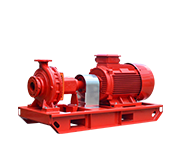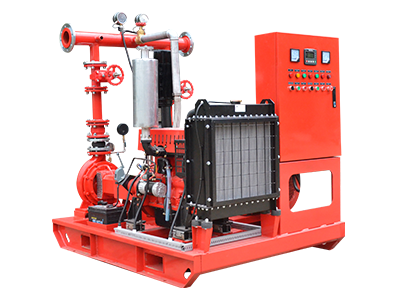- Fire Pump System
-
- UL-Listed Fire Pump SetEDJ End Suction Fire Pump SetEDJ Fire Pump SetEJ Small Flow Fire Pump SetFire Pump PackagesContainerized fire pump setDiesel Fire Pump SetED Small fire pump setElectric Jockey Fire Pump SetFire Pump Set with Jockey PumpFire Pump SystemSplit Case Fire Pump SetMutistage EDJ Fire Pump SetDiesel Fire Pump Set with Jockey PumpFire Fighting Pump SystemElectric Diesel Jockey Fire Pump SetFire Fighting Pump Set with Jockey PumpSmall Capacity Electric Fire Pump SetDJ Fire Pump Set with Jockey PumpEJ Fire Pump SetED Fire Pump Set (Electric+Diesel pump)Diesel Engine Fire Pump SetDiesel Fire Jockey PumpSmall Fire Pump SetEDJ Fire Pump SystemFire Water Pump SetFire Pump AssemblyDJ Small Flow Fire Pump SetCummins Engine Fire Pump Set
- Mobile Pump Unit
-
- Split Case Series Mobile Pump TruckSelf Priming Series Mobile Pump TruckCentrifugal diesel driven dewatering pumps open frame trailerFlow-mixing Mobile Pump TruckFlow-mixing Mobile Pump TruckManure Pump TruckP12 modle mobile Pump truckP10 Modle Mobile Pump Truck1000m³Self Priming Series Mobile Pump TruckLarge Flow Non-Clogging Mobile Fire Pump TrailerTrailer Mounted Fire PumpFire Emergency Mobile Pump TruckDiesel Engine Emergency Mobile Trailer Pump
- Diesel Fire Pump
-
- UL Listed Diesel End Suction Fire PumpXBC-S Diesel Split Case Fire PumpXBC-IS Diesel End Suction Fire PumpXBC-D Diesel Multistage Fire PumpVertical Turbine Diesel Engine Fire PumpDiesel Engine Single-Stage Centrifugal PumpXBC-IS Diesel End Suction Fire Fighting PumpXBC-S Diesel Engine Split Case Fire PumpDiesel Engine End Suction Fire PumpXBC-IS Diesel End Suction Fire PumpsZWC Diesel Engine Self Priming Pump for IrrigationDiesel Engine End Suction Fire Fighting PumpXBC-S Heat Exchange Diesel End Suction Fire PumpXBC-XA Diesel Engine End Suction Fire PumpXBC-IS Diesel Engine Fire PumpDiesel Engine End Suction Fire PumpXBC-IS Diesel Engine End Suction Fire PumpXBC-ISO Diesel Fire Fighting PumpPortable Fire PumpFire Booster Pump

Email: zjbetter@119pump.com
Tel:+86 15336708022(Gloria) +86 13306708055 (Ivy) +86 13357006058 (Serena) +86 13357022877 (Wendy) +86 17757009882(Kate)
Fax:0086-570-3010238
-
What are the emergency procedures if an electric fire pump fails during a fire?
If an electric fire pump fails during a fire: Activate backup systems: Switch to a backup pump if available. Most systems are designed with redundancy to ensure continued operation. Notify authorities: Immediately inform the fire department of the failure. Manual firefighting: Use manual firefighting equipment such as fire extinguishers and hoses if it’s safe to do so. Investigate and repair: After the emergency, conduct a thorough investigation to determine the cause of the failure and perform necessary repairs or replacements.
View more +
-
What are the emergency procedures if an electric fire pump fails during a fire?
If an electric fire pump fails during a fire: Activate backup systems: Switch to a backup pump if available. Most systems are designed with redundancy to ensure continued operation. Notify authorities: Immediately inform the fire department of the failure. Manual firefighting: Use manual firefighting equipment such as fire extinguishers and hoses if it’s safe to do so. Investigate and repair: After the emergency, conduct a thorough investigation to determine the cause of the failure and perform necessary repairs or replacements.
View more +
-
How do you ensure the reliability of an electric fire pump system?
Ensuring reliability involves several key practices: Regular maintenance and testing: Follow a strict schedule for inspections, testing, and maintenance. Qualified personnel: Use certified technicians for installation, maintenance, and repairs. Quality components: Use high-quality, certified components that meet industry standards. Redundancy: Implement backup systems, such as secondary pumps and power sources, to ensure the system operates during emergencies.
View more +
-
How do you ensure the reliability of an electric fire pump system?
Ensuring reliability involves several key practices: Regular maintenance and testing: Follow a strict schedule for inspections, testing, and maintenance. Qualified personnel: Use certified technicians for installation, maintenance, and repairs. Quality components: Use high-quality, certified components that meet industry standards. Redundancy: Implement backup systems, such as secondary pumps and power sources, to ensure the system operates during emergencies.
View more +
-
What are the differences between electric and diesel fire pumps?
Key differences include: Power source: Electric pumps use electricity, while diesel pumps use diesel fuel. Maintenance: Electric pumps generally require less maintenance than diesel pumps. Noise and emissions: Electric pumps are quieter and produce no exhaust emissions, unlike diesel pumps. Startup time: Electric pumps typically start faster than diesel pumps, which need time to crank the engine.
View more +
-
How do you troubleshoot common issues with electric fire pumps?
Troubleshooting common issues involves: Checking power supply: Ensuring there is adequate and uninterrupted electrical power. Inspecting the pump and motor: Looking for signs of wear, damage, or overheating. Verifying controller settings: Ensuring the controller is properly configured and operational. Examining piping and valves: Checking for leaks, blockages, or other issues that could affect water flow. Consulting manufacturer’s documentation: Following the recommended troubleshooting steps provided by the pump manufacturer.
View more +
-
How do you troubleshoot common issues with electric fire pumps?
Troubleshooting common issues involves: Checking power supply: Ensuring there is adequate and uninterrupted electrical power. Inspecting the pump and motor: Looking for signs of wear, damage, or overheating. Verifying controller settings: Ensuring the controller is properly configured and operational. Examining piping and valves: Checking for leaks, blockages, or other issues that could affect water flow. Consulting manufacturer’s documentation: Following the recommended troubleshooting steps provided by the pump manufacturer.
View more +
-
How do you determine the right location for an electric fire pump within a building?
The right location is determined by: Proximity to the water source: To minimize the distance and reduce friction losses. Accessibility: For ease of maintenance and inspections. Protection from hazards: To ensure the pump is not exposed to potential damage from fire, flooding, or other environmental factors. Compliance with codes: Following local fire codes and standards for placement and installation.
View more +
-
What should be done if an electric fire pump fails during an emergency?
If an electric fire pump fails during an emergency, the following steps should be taken: Activate the backup pump: If available, switch to a secondary pump or manual firefighting methods. Investigate the cause of failure: After the emergency, perform a thorough inspection to determine the cause of the failure. Repair or replace the pump: Address the identified issues and restore the pump to full operational status. Review maintenance practices: Ensure regular testing and maintenance procedures are followed to prevent future failures.
View more +
-
What are common issues with electric fire pumps and how can they be prevented?
Common issues include: Power supply problems: Ensure a reliable and uninterrupted power source, including backup generators. Mechanical wear and tear: Regular maintenance and timely replacement of worn parts can prevent breakdowns. Electrical faults: Routine inspection of electrical connections and components can help identify and rectify potential issues before they lead to pump failure.
View more +
-
How can I improve the energy efficiency of my vertical turbine pump?
Proper Sizing: Ensure the pump is correctly sized for the application. Variable Frequency Drives (VFDs): Use VFDs to adjust motor speed and match flow requirements. Regular Maintenance: Keep the pump in good working condition to avoid energy losses due to wear and tear.
View more +
-
What maintenance is required for a vertical turbine pump?
Regular maintenance includes: Inspection: Regular checks for wear and tear on bearings, impellers, and seals. Lubrication: Ensuring proper lubrication of bearings. Cleaning: Removing any debris or buildup from the pump components. Alignment Checks: Ensuring the pump remains properly aligned.
View more +
-
What are the key factors in designing fire pump systems for high-rise residential buildings?
- Pressure Management: Implementing pressure management strategies, such as pressure zones and booster pumps, to ensure adequate pressure at all levels. - Compact Design: Using compact and efficient pump designs that fit within the limited space available in high-rise buildings. - Redundant Systems: Installing redundant pump systems to ensure continuous fire protection even if one pump fails. - Regular Testing and Maintenance: Conducting regular testing and maintenance to ensure reliable operation and compliance with residential fire safety codes.
View more +
-
How do fire pumps support the protection of large public transportation hubs, like airports and train stations?
High-Capacity Water Supply: Providing a robust water supply to handle large-scale fire scenarios that can occur in public transportation hubs. - Complex Layouts: Addressing the complex layouts of transportation hubs with tailored fire pump and piping systems to ensure comprehensive coverage. - Rapid Response: Ensuring quick activation and response to minimize disruption and ensure the safety of passengers and staff. - Integration with Evacuation Systems: Coordinating with evacuation systems and protocols to facilitate safe and efficient evacuation during a fire emergency.
View more +
-
What role do jockey pumps play in maintaining fire pump system readiness?
- Pressure Maintenance: Jockey pumps maintain system pressure, preventing unnecessary start-ups of the main fire pump due to minor leaks or pressure drops. - System Integrity: By keeping the system pressurized, jockey pumps ensure that the fire protection system is always ready to respond immediately. - Cost Efficiency: Reducing wear and tear on the main fire pump by minimizing its operation frequency, thus extending the life of the main pump. - Leak Detection: Assisting in detecting small leaks within the fire protection system, as frequent jockey pump cycles can indicate potential issues.
View more +
-
How do you ensure redundancy in fire pump systems?
- Ensuring redundancy involves: - Multiple Pumps: Installing multiple fire pumps (primary and secondary) to provide backup in case the primary pump fails. - Independent Power Sources: Using different power sources for each pump (e.g., electric for one and diesel for another) to mitigate the risk of total power failure. - Automatic Transfer Switches: Implementing automatic transfer switches to seamlessly switch power sources in case of a failure. - Regular Testing: Conducting regular tests on all pumps to ensure that both primary and backup systems are operational.
View more +
-
How do you ensure fire pumps are ready for use in emergency situations?
Ensuring readiness involves: Regular Testing: Conducting regular operational tests to verify performance and identify any issues. Routine Maintenance: Performing routine maintenance to keep the pump and system components in optimal condition. Emergency Drills: Conducting emergency drills to ensure staff are familiar with pump operation and emergency procedures. Monitoring Systems: Using monitoring systems to continuously track pump status and receive alerts for any abnormalities.
View more +
-
What are the considerations for integrating fire pumps into mixed-use developments?
Considerations include: Diverse Needs: Addressing the diverse fire protection needs of residential, commercial, and possibly industrial areas within the development. Pressure Management: Implementing pressure management strategies to ensure adequate pressure across different building types and heights. Zoning and Isolation: Creating zones to isolate and control the fire protection system according to the specific requirements of each use type. Unified Monitoring: Using a unified monitoring system to oversee the fire pump operations across the entire development.
View more +
-
How do you manage the lifecycle of fire pump systems?
Lifecycle management involves: Regular Maintenance: Implement a scheduled maintenance program to keep the pump in optimal condition. Upgrades and Retrofits: Upgrade or retrofit components as technology advances or as system requirements change. End-of-Life Planning: Plan for the eventual replacement of the pump system, ensuring minimal disruption to fire protection coverage. Performance Monitoring: Continuously monitor performance to identify when parts or the entire system need replacement or overhaul.
View more +
-
What are the steps for commissioning a new fire pump system?
Steps include: Initial Inspection: Perform a thorough inspection of the installation to ensure all components are correctly installed and connected. Performance Testing: Conduct performance tests to verify that the pump meets the required flow and pressure specifications. System Calibration: Calibrate control systems and settings to ensure proper operation and response times. Documentation: Document all tests, inspections, and calibrations, creating a comprehensive commissioning report. Training: Provide training for facility staff on the operation, maintenance, and emergency procedures related to the fire pump system.
View more +
-
How do you ensure fire pump systems are prepared for power outages?
Ensuring preparedness involves: Backup Power: Install backup generators or connect to reliable emergency power sources to ensure continuous operation during outages. Automatic Transfer Switches: Use automatic transfer switches to quickly switch to backup power in case of a main power failure. Battery Backup: For jockey pumps and control systems, use battery backups to maintain pressure and control functionality during short-term outages. Regular Testing: Test the backup power systems regularly to ensure they are operational and capable of supporting the fire pump system.
View more +
-
What are the considerations for fire pump installations in seismic zones?
In seismic zones, considerations include: Seismic Bracing: Ensure the pump and associated piping are securely braced to withstand seismic forces. Flexible Connections: Use flexible couplings and connections to accommodate movement and prevent damage during an earthquake. Location: Install the pump in a location less likely to be impacted by structural damage, away from potential falling debris. Compliance with Codes: Follow local seismic codes and standards for installation and anchoring of fire protection equipment.
View more +
-
What are the considerations for fire pump systems in multi-story buildings?
Considerations include: Zoning: Implement pressure zoning to manage pressure levels at different heights and avoid over-pressurization. Booster Pumps: Use booster pumps to maintain adequate pressure on higher floors. Pipe Sizing: Properly size pipes to handle the flow and pressure demands of the building. Redundancy: Ensure redundancy with multiple pumps and power sources to maintain protection during failures.
View more +
-
How do fire pumps support dry pipe and deluge fire protection systems?
Fire pumps in dry pipe systems: Pressure Maintenance: Maintain system pressure to keep the pipes free of water until activation. Quick Activation: Quickly deliver water to the system when a fire is detected, ensuring timely suppression. - Fire pumps in deluge systems: High Flow Rate: Provide a high flow rate to flood the protected area with water through open nozzles or sprinklers. Immediate Response: Ensure an immediate response by maintaining readiness and reliable operation.
View more +
-
How do you address noise and vibration issues in fire pump installations?
Addressing noise and vibration involves: Vibration Dampening: Use vibration isolators and flexible couplings to reduce transmission of vibrations. Soundproof Enclosures: Install soundproof enclosures around the pump and motor to minimize noise. Proper Mounting: Ensure the pump is properly mounted on a stable base to reduce vibration. Routine Maintenance: Regularly check and maintain bearings, couplings, and alignment to prevent noise and vibration issues.
View more +

